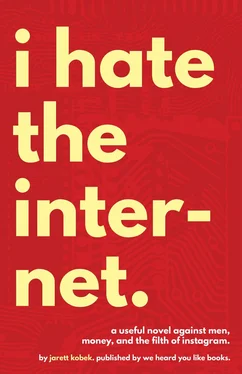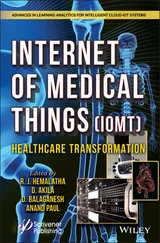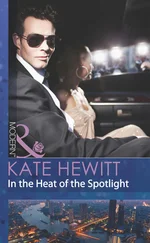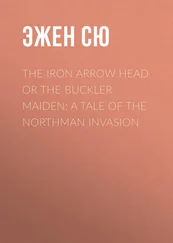The event for Annie Zero was held downstairs.
Because of the fictional conceits within Annie Zero, Baby was being mentioned alongside a certain class of contemporary writers.
These writers were influential amongst the men who ran Silicon Valley. These writers were also influential amongst the men who worked in subservient positions to the men who ran Silicon Valley.
Baby had joined the ranks of writers like William Gibson, who wrote Neuromancer.
Baby had joined the ranks of Neil Stephenson, who wrote Snow Crash and Cryptonomicon.
Baby had joined the ranks of Cory Doctorow, who wrote fantasies about rebellion aimed at a teenaged audience.
Despite being aimed at a teenaged audience, Cory Doctorow’s books were read by adults. Typically, these adults were UNIX systems administrators, network engineers, and Ruby developers who’d been rendered functionally illiterate by their collegiate computer science programs.
When Baby was writing Annie Zero , he needed a conceptual space for the French Neo-Maoists to stage battles against the entrenched social order.
Because Baby was realistic about the future, he couldn’t conceive of a world in which these battles happened in any traditional context.
So he invented the Megaverse.
In Annie Zero, after global warming and an accidental nuclear winter, all the world’s citizens live out their lives in the Megaverse. The Megaverse was a significantly upgraded version of an old online multiplayer roleplaying game called Ultima Online.
When the tattered shreds of the world government modded Ultima Online into the Megaverse, there were many notable enhancements, including wetware interfaces for biological needs like fucking, eating and shitting.
The central conceit of Annie Zero is that life in the Megaverse has evolved to a point where its social structure is an almost exact mirror of life in 1990s. The Neo-Maoist revolution happens in a world that is a virtual duplicate of our own.
Despite the inference of this narrative, Baby didn’t believe in teleological social progress.
He did believe in recognizable fictional settings. He knew that a recognizable setting would help draw in an audience. From his experience with Trapped Between Jupiter and a Bottle , he also knew that a recognizable fiction setting was the best way to convince readers that his work was an allegory .
Allegory was a word used by self-important writers and readers to suggest that the flaws of an above average novel were, in fact, virtues.
When someone suggested that a narrative was allegorical, they meant that the narrative’s symbolism was intentionally gauzy. They meant that a narrative’s ill-thought out structure possessed a secret meaning.
Many, many people called Annie Zero an allegory . They saw parallels between Baby’s Megaverse and the work that they were doing on the Internet and in Silicon Valley.
They also found the struggles of the Neo-Maoists very inspiring. What was the Internet if not an outlet of constant revolution and social change?
These men were confused about the basic nature of Neo-Maoism. Their formal educations in computer science had rendered them historically as well as functionally illiterate.
They didn’t realize that Maoism had been, you know, like, an actual thing.
Thus did Baby find a wider audience, elevating himself out of the common gutter of Science Fiction and into the echelons of digital prophecy.
Baby didn’t care about the Internet’s potential for free speech or world revolution. He only wanted to tend his own garden.
But Baby was realistic. For a long time, he’d known that the Internet was a propaganda engine through which he could trick people into buying his books.
He began tweeting cryptic phrases about new technologies, futurism and dystopias.
Christine came to the event as a favor to a friend, who didn’t want to attend Baby’s event by himself.
Adeline went to the event because Baby was Baby and Adeline was Adeline. She hadn’t read Annie Zero.
Before Baby arrived in San Francisco, he did fifteen other events. Most were on the East Coast. A few in the American Middle West. Some in Southern California.
He had pressed the flesh of his audience and in turn his audience had pressed their flesh against him.
One member of Baby’s audience had given him a terrible cold.
He’d since swallowed a near overdose of remedies, including: Vitamin C, Vitamin E, NyQuil and Sudafed. Nothing helped.
As he walked through the door of City Lights, Baby was one of America’s sickest men. He leaked mucus from all the orifices of his countenance. His eyes blurred with tears.
The only saving grace was that, forty-eight hours earlier, the vomiting and violent diarrhea had disappeared.
Baby stood at the podium and talked and talked. About the abuses of Maoism, about its vogue with young Parisians of the upper middle class during the May ’68 revolt, about the suicide of Guy Debord, about the Khmer Rouge, about the novelist Michèle Bernstein, about the conceptual structure of the Megaverse.
While he talked, he coughed. While he talked, he blew his nose. While he talked, he expelled phlegm into a handkerchief.
The event was standing-room only.
Baby spoke for an hour, scattering germs in every direction.
Baby finished speaking. People queued in line. They wanted Baby to sign copies of Annie Zero . Adeline hung around near the front of the store.
Christine was in the same area. Her friend was queued in line. Christine had no interest in Baby’s autograph.
“What’s the matter with you, sweetheart?” asked Adeline. “Aren’t you simply dying to touch the author of Annie Zero? Or is it his germs that you fear?”
“I haven’t read it,” said Christine. “I’m just waiting for a friend.”
“Me too,” said Adeline. “Do you know, I gather that Annie Zero is rather stuffed full of interesting new words. There might very well be a word in Annie Zero for the chance meeting of two people at an event for a book neither person has read.”
“Is there a glossary?” asked Christine. “Some of these books come with their own glossaries.”
They checked. There was no glossary.
Baby finished signing books. Peter Maravelis asked Baby to leave an artifact on an altar in the basement. Maravelis said that every writer left a relic.
Baby couldn’t think of anything, so he ripped a random page from his reading copy of Annie Zero and blew his nose.
“The very first thing on here was a cum rag,” said Peter Maravelis.
Baby was staying with Adeline. The plan was to go for drinks after the event. Adeline asked Christine if she wanted to come along.
“What about my friend?”
“Is he a square?” asked Adeline. “Does he have four equal sides and angles?”
“It’d be kind of embarrassing,” said Christine. “He might gush the whole night.”
“Baby’s simply been gushing for days. It might be nice to have someone else do the dirty deed.”
Christie ditched her friend. Christine told her friend that she was taking a cab home.
Christine walked out of City Lights, headed down Columbus towards Market. She waited five minutes and doubled back on Pacific, Grant and Kerouac Alley. Her friend was gone.
Baby invited his own set of people. Adeline didn’t know any of them. One was a gorgeous twink .
Twink was slang for a young gay man without any personality or body hair.
Everyone went across the street to a bar called Specs, an old wooden place decorated with a wide-range of curios.
Читать дальше












